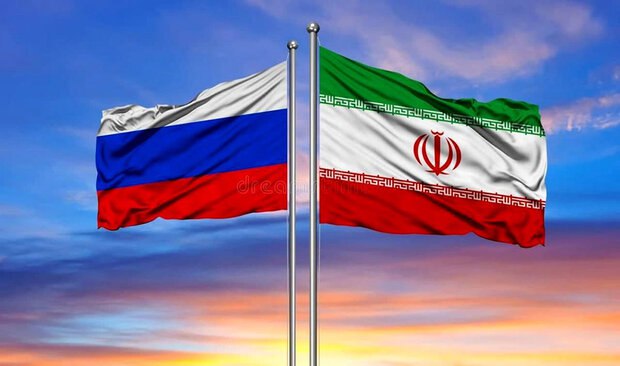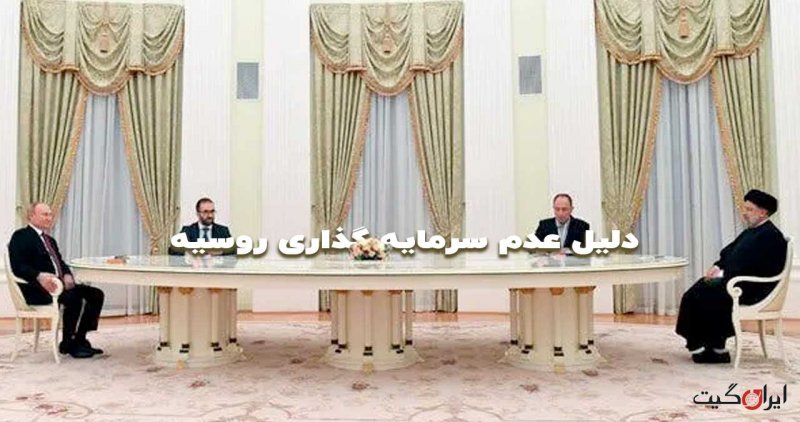What is the reason for Russia’s lack of investment in Iran?
What is the reason for Russia’s lack of investment in Iran? According to Iran Gate, after the Islamic Republic’s involvement in the Ukraine war on Russia’s side became evident, Europe also took action and imposed extensive sanctions against Iran. This happened in a situation where the European Union had not taken such measures for over a decade and was trying to resolve mutual issues through diplomatic means. However, the Islamic Republic’s intervention in the Ukraine war changed everything, leaving Tehran with Moscow, which is stuck in Putin’s self-made quagmire.
After the European Union adopted very harsh stances against the Islamic Republic’s interventions in the Ukraine war, Raisi’s government increasingly and excessively sought refuge in the Kremlin. This issue became so serious that Putin came to Tehran and promised a $40 billion investment in Iran’s energy industry. Now, more than six months after Vladimir Putin’s visit to Tehran, there is still no sign of Russian rubles in Iran’s economy. What is the reason for this, and why does Russia, despite Tehran’s proven loyalty to Moscow, still lack the will and motivation to invest in Iran?
Investment is out of the question; Moscow is obstructing.
Experts have emphasized from the early days of the Ukraine war and the increasing seriousness of the discussion about Iran’s return to the energy market that Putin will not allow this to Tehran, as the potential move by the Islamic Republic would effectively render Russia’s export cut to Europe ineffective. Although some believed that the ‘hard winter’ scenario would soon materialize, and if Iran cooperated with the Kremlin in implementing Russia’s plans, it would certainly receive a good reward from Moscow.
However, time passed, and contrary to what the hardliners promised, there was no news of a hard winter in Europe either. Now, Moscow is under severe pressure. With the drop in oil prices in global markets, the challenge of earning revenue from the energy market has made the Kremlin more reluctant than ever to invest in Iran. Of course, this is not the only reason for the Russians’ reluctance to spend rubles in Tehran, but if there was even the slightest hope for this scenario to come true, it has completely faded with the debunking of myths like the hard winter.
How Moscow snatched Beijing and Delhi.
But this situation has not only resulted in the lack of investment by Russian companies in Iran, but also, given the challenges of earning revenue, Moscow is witnessing extensive obstructions by the Kremlin and Russian oligarchs to Iran’s entry into global energy markets. Among these obstacles is the entry of Russia’s Gazprom into markets like India and China, which were previously almost exclusively under Iran’s control.
On the other hand, the very heavy discounts offered by the Russians have naturally led Indians and Chinese to be much more inclined to replace Iranian companies with Russian ones. Some sources report discounts of 30 to 40 percent by the Russians in the energy market to Chinese and Indian customers. Meanwhile, Tehran, due to extensive sanctions, was forced to sell oil at a discount of about 15 to 20 percent to buyers. But with the level of discount that Russia has introduced to the market, Tehran is effectively out of the competition.

Erdogan’s orchestration without a drop of oil.
The developments resulting from the Ukraine war and the changing dynamics in the energy market have led to new players taking on roles in this arena. Among the most important of these new players is Turkey. Turkey, which does not have a single exploitable oil and gas field, has now become one of the most important orchestrators in the energy market.
Some experts even believe that the change in the gas transfer regime between the Middle East and Europe has effectively turned Turkey into the largest energy hub in the Middle East, as Europeans, after the Ukraine war, were forced to replace countries like Qatar and the UAE with Russia. Therefore, it was predictable that Turkey would play a pivotal role as the most important intermediary link in this context.
Swap was also a mirage.
This issue has also caused Iran to lose its only opportunity to take advantage of the situation created by the Ukraine war. On the other hand, Russia had promised that Iran would act as an intermediary for Russian oil and gas to swap to Pakistan and even India. However, reports on this topic indicate that Russia has found other ways to export energy to Iran’s eastern neighbors, effectively excluding Tehran from this circle.
What’s up with the Russian oligarchs?
Given the described conditions, it can be said that Ebrahim Raisi’s government not only did not benefit from cooperating with Russia on the Ukraine front, but also lost its precarious position in the energy market, which had been maintained with difficulty after the U.S. withdrawal from the JCPOA. Naturally, the Russians will not take the slightest step towards returning Iran to its previous status.
Because, as mentioned, this return would mean a significant reduction in Russia’s revenue in wartime and crisis conditions. To understand this situation, one does not need to be an energy expert; it is quite clear that even if Russian oligarchs are interested in entering the Iranian market and exploiting our country’s resources, it is the Kremlin that will not allow them to do so.

